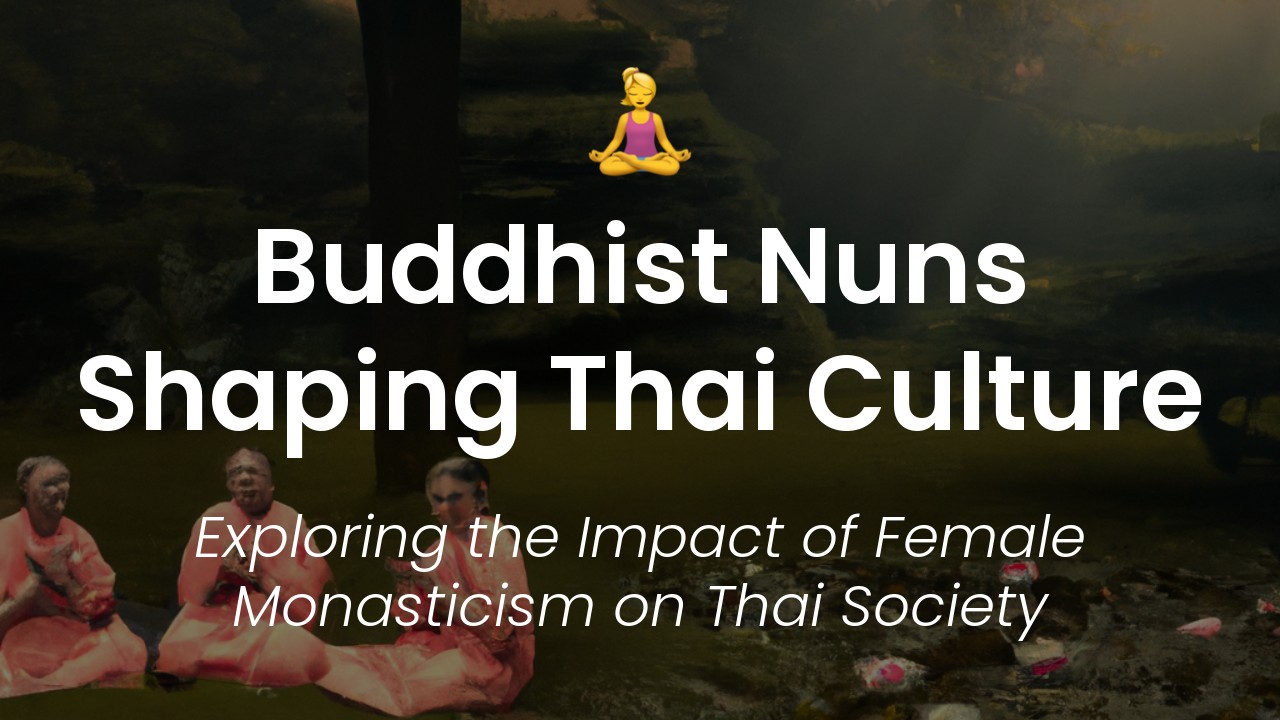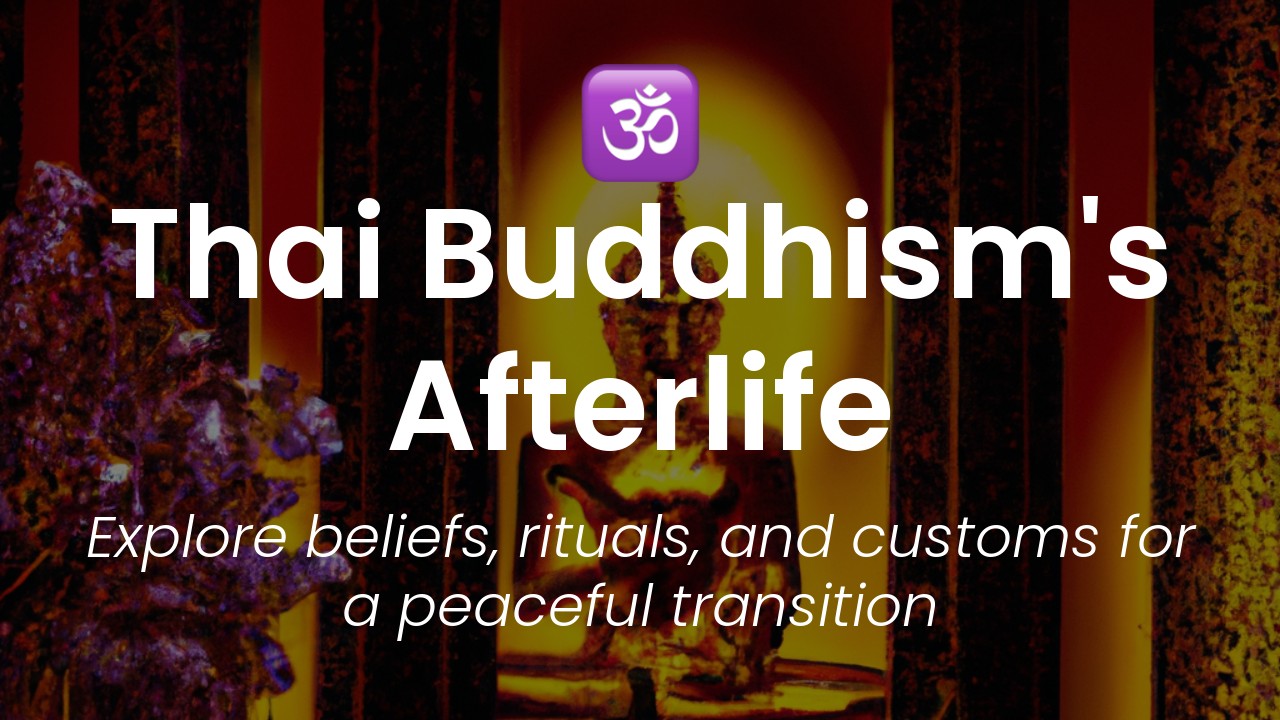Hello there, dear readers! Today, we are going to explore an aspect of Thai culture that is often overlooked – the role of Buddhist nuns. While they are not as visible as their male counterparts, Buddhist nuns have been quietly shaping the religious and cultural landscape of Thailand for centuries.
Traditionally, women in Thailand have been confined to supporting roles within the temple, with few opportunities to become fully ordained nuns. However, this is slowly changing, thanks to the efforts of a few pioneering women who have pushed for greater recognition and rights for Buddhist nuns.
In recent years, more and more women have been ordained as nuns and have taken on leadership roles within the Buddhist community. They are not only spreading the teachings of Buddha but also challenging gender stereotypes and advocating for social change. As a result, they are becoming important cultural influencers in a country that has long valued the voices of monks above all others. In this article, we will explore the ways in which Buddhist nuns are shaping Thailand's culture, and why their contributions are so important. So, let's get started!
The Emergence of Buddhist Nuns in Thailand
Thailand, the Land of Smiles, is considered one of the most religious Buddhist countries in the world. Buddhism has weaved itself into every aspect of Thai life – from daily rituals to cultural celebrations – and has become a fundamental part of its identity. What many might not know, however, is how Buddhist nuns have played a crucial role in shaping Thai culture.
Before we dive into the current status of Buddhist nuns in Thailand, let's take a brief look at the history of how nuns emerged in the Buddhist world.
The Historical Exclusion of Women in Buddhism
Buddhism originated in India over 2,500 years ago, and during those early years, both nuns and monks were accepted as equal members of the monastic community. However, over time, the status of nuns gradually declined, and their rightful place as legitimate members of the Buddhist community was undermined by patriarchy and gender bias.
As Buddhism made its way into different countries and cultures, the social norms of each place also influenced how Buddhism was practiced. In many societies, women were seen as inferior to men, and this was reflected in how Buddhist nuns were treated. In some countries, they were barred from receiving full ordination, and their role in the religious community was marginalized.
The Emergence of Buddhist Nuns in Thailand
In Thailand, it wasn't until the 20th century that Buddhist nuns began to emerge as a religious force. In 1928, a group of women gathered together to study Buddhism under the guidance of an abbot, and this was the start of the revival of Buddhism for women in Thailand. Since then, the number of nuns in Thailand has grown steadily, and they have played an increasingly important role in shaping Thai culture.
Women's Empowerment through Buddhism
One significant impact that Buddhist nuns have had on Thai culture is the empowerment of women. As nuns began to emerge in society, they opened the door for other women to enter the monkhood. Many Thai women who might previously have felt excluded from the religious community now have a space where they can explore their spirituality and take on leadership roles in their communities.
Moreover, through their daily practices and teachings, Buddhist nuns have become powerful advocates for gender equality and women's rights in Thailand. By challenging the patriarchal values that have been entrenched in Thai society for centuries, nuns have played a significant role in liberating women from social constraints.
The Current Status of Buddhist Nuns in Thailand
Despite the progress made in recent years, Buddhist nuns in Thailand still face many challenges. For one thing, they are not recognized as full members of the Buddhist community and do not enjoy the same level of support and respect that monks do. Additionally, the ordination process for nuns is more difficult than for monks, and some temples do not allow nuns to participate in traditional rituals.
However, the perseverance and dedication of Buddhist nuns are opening up paths for other women in Thailand to become involved in Buddhism, and this is fostering positive change in society.
Buddhist Nuns' Impact on Thai Society
Buddhist nuns have made an impact on Thai society beyond their spiritual influence. Through their charitable work, they have been able to uplift communities and help those in need. For example, nuns in Thailand have been providing education and healthcare services to poor communities in remote areas of the country.
Furthermore, nuns have also been at the forefront of environmental protection and conservation in Thailand. In a country where environmental issues are significant, nuns have been working with local communities to promote sustainable practices such as reducing plastic waste and conserving natural resources.
Challenges and Opportunities for Buddhist Nuns in Thailand
The challenges that Buddhist nuns face in Thailand are not unique, as women around the world face similar issues in patriarchal societies. However, Buddhist nuns in Thailand continue to inspire and demonstrate that through education, advocacy, and perseverance, social change is achievable.
In conclusion, Buddhist nuns have played a fundamental role in shaping Thai culture by empowering women, promoting gender equality, and advocating for social justice and environmental sustainability. While there are still many challenges that lay ahead, the work of Buddhist nuns in Thailand serves as a beacon of hope and inspiration for women everywhere.







